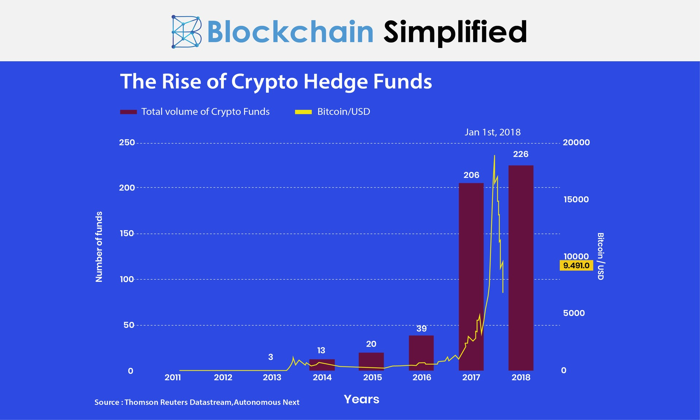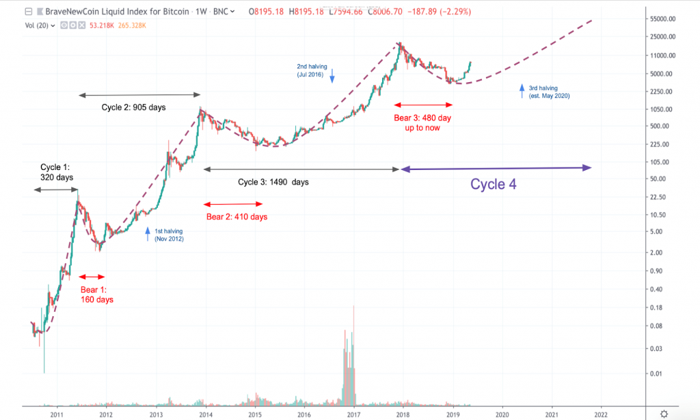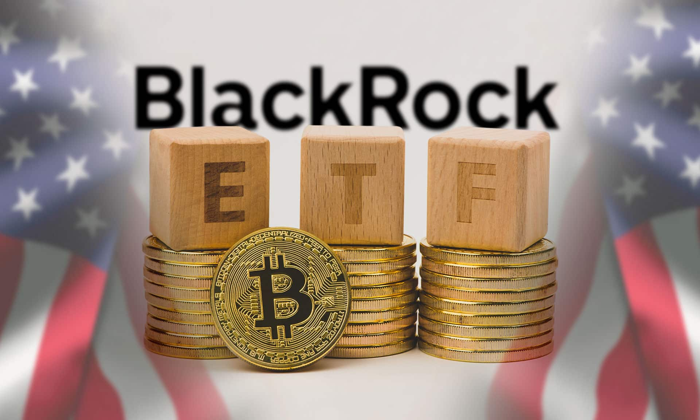In times of uncertainty, Bitcoin has emerged as an attractive option for investors seeking a hedge against market volatility. As traditional assets suffer, particularly during a downturn in the U.S. stock market, the resilience of the cryptocurrency market and its potential as a reliable investment in Bitcoin cannot be overlooked. With a stark contrast in performance, Bitcoin’s steady decline of around 6% amidst a hefty $5.4 trillion loss in equities underscores its emerging role as a U.S. isolation hedge. Market analysts have noted that Bitcoin’s capability to somewhat decouple from equities like the Nasdaq showcases its unique position as a safe haven for concerned investors. As the economic landscape becomes increasingly unstable, the appeal of Bitcoin as a hedge against financial turbulence continues to grow, making it a key consideration for a diversified investment portfolio.
In the face of economic upheaval, Bitcoin is gaining traction as an effective safeguard against investment risks associated with stock market fluctuations. Dubbed the ‘isolation hedge’ for its potential to provide security when traditional finance wavers, Bitcoin’s performance offers an intriguing alternative to conventional assets. Investors are looking towards cryptocurrency not just as a speculative tool, but as a viable strategy amidst falling stock values, particularly following significant market downturns. This trend positions Bitcoin as a noteworthy option for those aiming to navigate the unpredictable nature of the financial landscape. With increasing discussions around its role in safeguarding against broader economic crises, Bitcoin is rapidly becoming a focal point for savvy investors seeking stability.
Bitcoin Performance Amid Market Volatility
In the face of recent economic turmoil, Bitcoin has showcased its strength as a digital asset. After the announcement of reciprocal tariffs by President Trump, the U.S. stock market witnessed a staggering loss of over $5 trillion in just two days. Despite these dramatic changes, Bitcoin’s performance remained comparatively stable, with only a 6% decline. This resilience highlights Bitcoin’s potential role as a hedge against traditional market fluctuations, attracting attention from both investors and analysts who are looking for refuge amid financial instability.
As the cryptocurrency market navigates the turmoil, many analysts emphasize Bitcoin’s significance as a non-correlated investment. Unlike stocks, which can plummet in tandem with adverse news, Bitcoin often exhibits a degree of independence from traditional asset classes. Furthermore, the contrast between a mere 6% dip in Bitcoin versus the Nasdaq’s steep 11% drop underscores its strength during these turbulent times. This performance suggests that investors seeking safe havens might increasingly turn to Bitcoin as a suitable option.
Bitcoin as a Hedge Against Traditional Finance Instability
Recent trends highlight Bitcoin’s emerging role as a hedge against instability in the traditional financial markets. As countries engage in trade wars and markets react negatively to government policies, Bitcoin stands out as a potential sanctuary for investors. Standard Chartered’s analysis posits that Bitcoin can serve as a hedge against both inflationary pressures and geopolitical uncertainties, reinforcing the narrative that cryptocurrency can offer an effective counterbalance to traditional assets like equities.
In light of the current economic landscape, where investors are faced with significant market drops and uncertainty, Bitcoin’s reputation as a hedge is becoming increasingly solidified. Analysts have noted Bitcoin’s unique properties that allow it to function independently of traditional financial systems. The concept of Bitcoin as a U.S. isolation hedge suggests that even amidst international chaos, Bitcoin could provide a level of security and stability, further enhancing its appeal in times of crisis.
Resilience of the Cryptocurrency Market
The resilience of the cryptocurrency market during tumultuous times has not gone unnoticed. While the U.S. equities market endured a massive sell-off, the cryptocurrency landscape, particularly Bitcoin, demonstrated relative stability. The CoinDesk 20 index, a representation of various cryptocurrencies, faced only a 4.9% decline, reflecting the overall strength and adaptability of digital currencies in volatile markets. This resilience is attributed to growing investor belief in the long-term viability of cryptocurrencies as part of a diversified investment strategy.
Moreover, Bitcoin’s recent performance amidst significant economic downturns suggests that it holds potential for recovery and growth. Investors are increasingly recognizing cryptocurrencies as a new asset class that can weather traditional market storms. With investment interest ramping up, the cryptocurrency market is positioned for further maturation, paving the way for diversified product offerings such as ETFs that appeal to traditional investors seeking to tap into the resiliency of digital assets.
The Impact of Tariffs on Market Sentiment
President Trump’s announcement of bilateral tariffs has stirred market sentiment dramatically, leading to one of the largest equity market sell-offs in history. The $5.4 trillion loss not only rattled traders but also highlighted the interconnectedness of global economies. Amid this chaos, Bitcoin’s function as a countercyclical asset became more pronounced, with investors searching for alternatives to save their portfolios from steep losses commonly associated with stock market fluctuations.
The ensuing market turmoil due to tariffs draws attention to the way cryptocurrencies like Bitcoin can provide diversification in an investment portfolio. Unlike traditional stocks that often react similarly to negative news, Bitcoin has shown a capacity for relative stability. This uniqueness prompts investors to consider Bitcoin as a viable option amidst uncertainty, solidifying its status as a hedge against economic tumult and reinforcing confidence in the broader cryptocurrency market.
Long-term Investment in Bitcoin
The current economic climate has led to a renewed interest in long-term investment strategies, particularly regarding Bitcoin. With many investors reevaluating their portfolios in light of recent equity declines, Bitcoin presents itself as an attractive option. Its historical performance has shown remarkable growth, often outpacing traditional investment vehicles, prompting strategic shifts towards cryptocurrencies as a crucial component of future investments.
Institutional adoption of Bitcoin further underscores its appeal as a long-term investment. Companies like MicroStrategy have amassed significant holdings, demonstrating a belief in Bitcoin’s future value. This trend indicates a growing acceptance of Bitcoin, not just as a speculative asset but as a foundational element for financial portfolios aiming for sustainability and growth in face of traditional market volatility.
Decoupling of Bitcoin from Traditional Markets
The current market dynamics suggest a potential decoupling of Bitcoin from traditional equities, a phenomenon that many analysts are keenly observing. As Bitcoin dropped less sharply than the Nasdaq during recent sell-offs, it indicates a possible shift in investor sentiment towards viewing Bitcoin as a distinct asset class. This decoupling could enhance Bitcoin’s status as both a safe haven and a long-term investment opportunity, leading to broader adoption.
Such a decoupling could signify that Bitcoin is moving beyond its previous association with the stock market, paving the way for it to be valued on its own merits. If this trend continues, investors might increasingly view Bitcoin and other cryptocurrencies as independent investment vehicles that can provide resilience during traditional market downturns. This evolving perception is crucial for the broader acceptance and integration of Bitcoin in mainstream financial dialogues.
The Role of Bitcoin Miners in Market Stability
Bitcoin miners play an essential role in maintaining the stability and security of the Bitcoin network, especially during turbulent market periods. As the ecosystem adjusts to market pressures, miners continue to validate transactions and secure the network, contributing to Bitcoin’s resilience against market volatility. Their impact on sustaining market confidence cannot be overstated, given their foundational role in the cryptocurrency landscape.
Additionally, the profitability of Bitcoin mining can serve as a barometer for market health. When mining operations remain lucrative despite fluctuations in asset values, it reflects underlying strength in the network, encouraging investors to maintain their positions or enter the market. This operational stability can underpin Bitcoin’s performance, reinforcing its status as a hedge against the chaos of traditional financial systems.
Bitcoin’s Appeal to Institutional Investors
The recent turmoil in traditional financial markets has amplified Bitcoin’s appeal to institutional investors. With pension funds and hedge funds increasingly looking for alternatives that can withstand traditional market volatility, Bitcoin emerges as a formidable contender. Institutions recognize the potential for Bitcoin to not only hedge against losses incurred in mainstream investments but also to provide exposure to a rapidly growing asset class.
As institutional interest continues to rise, Bitcoin’s infrastructure is evolving to accommodate larger players, facilitating smoother entry points for institutional capital into the cryptocurrency market. The influx of institutional investment solidifies Bitcoin’s standing as a serious contender in the realm of traditional investments, further enhancing its position as a hedge during turbulent times.
Celebrating Bitcoin’s Historical Milestones
The cryptocurrency community recently celebrated a pivotal milestone, marking the birthday of Bitcoin’s enigmatic creator, Satoshi Nakamoto. This celebration coincided with significant historical events, amplifying the symbolic importance of Bitcoin as a pioneer in the digital currency landscape. Acknowledging these milestones reinforces the narrative of Bitcoin as a revolutionary asset that is gradually gaining acceptance across various sectors.
Moreover, reflecting on Bitcoin’s history reminds investors of its resilience and transformative potential within the financial ecosystem. Just as the birth of Bitcoin emerged from economic necessity, its current relevance in providing a hedge against market instability is a testament to its longevity. Each anniversary brings renewed interest and excitement, encouraging both new investors and seasoned players to explore its potential further.
Frequently Asked Questions
How is Bitcoin performing as a hedge against the US stock market crash?
Bitcoin has demonstrated notable resilience as a hedge against the recent US stock market crash, particularly during events like President Trump’s announcement of reciprocal tariffs, which wiped out over $5 trillion in equity value. With Bitcoin’s price decreasing only 6% compared to the Nasdaq’s 11%, it showcases its potential as a reliable hedge during market instability.
Can Bitcoin act as a cryptocurrency market resilience during traditional financial crises?
Yes, Bitcoin has emerged as a potential beacon of cryptocurrency market resilience during traditional financial crises. Analysts from Standard Chartered suggest that Bitcoin can be viewed as a ‘U.S. isolation hedge,’ effectively maintaining value and offering a safe haven for investors amidst plunging equities and economic turmoil.
Is investment in Bitcoin advisable during stock market declines?
Investing in Bitcoin during stock market declines can be prudent, as it has shown less volatility compared to traditional assets during crises. For instance, when the S&P 500 faced significant downturns, Bitcoin’s performance remained comparatively stable, indicating its growing role as a hedge against turmoil in the conventional financial landscape.
What makes Bitcoin a viable isolation hedge in the current economic climate?
Bitcoin’s designation as a viable isolation hedge stems from its ability to decouple from traditional market movements. In times of economic distress, like the recent broad sell-off in stocks, Bitcoin’s relative stability positions it as a strategic investment choice, appealing to those seeking protection against losses in traditional equity markets.
How does Bitcoin’s performance compare to the Nasdaq during financial instability?
During financial instability, Bitcoin’s performance has generally outpaced the Nasdaq. For instance, amid a recent market crash where the Nasdaq dropped 11%, Bitcoin only fell by 6%. This stark difference emphasizes Bitcoin’s potential role as a hedge, particularly in turbulent economic conditions.
What are the benefits of considering Bitcoin as a hedge against inflation?
Considering Bitcoin as a hedge against inflation offers several benefits, including its limited supply, which can counteract devaluation due to traditional monetary policies. As inflation rises and economies face instability, Bitcoin’s appeal as a protective asset often increases, making it a strategic investment for those looking to safeguard their wealth.
Why do analysts refer to Bitcoin as a hedge against traditional finance instability?
Analysts refer to Bitcoin as a hedge against traditional finance instability due to its decentralized nature and independence from government-controlled monetary systems. During turbulent economic periods, Bitcoin’s ability to maintain value while other assets plummet enhances its reputation as a safe haven investment.
What investment strategies involve using Bitcoin as a hedge?
Investment strategies that involve using Bitcoin as a hedge typically include allocating a portion of a portfolio to Bitcoin to counterbalance risks from traditional equities, especially during economic downturns. This diversification strategy seeks to leverage Bitcoin’s potential for higher returns and its resilience against financial volatility.
| Key Points | Details |
|---|---|
| Bitcoin as a Hedge | Bitcoin is increasingly viewed as a hedge against instability in traditional finance, particularly amid market turmoil. |
| Market Impact | U.S. equities lost $5.4 trillion in value over two days after President Trump announced reciprocal tariffs, whereas Bitcoin dropped only about 6%. |
| Performance Comparison | During the market sell-off, the Nasdaq dropped 11%, while Bitcoin’s decline was much less severe at around 6%. |
| Crypto Resilience | The crypto market maintained relative stability with the broader CoinDesk 20 index falling by only 4.9%. |
| Investor Behavior | Some crypto stocks saw increases, such as MARA Holdings and Core Scientific, despite the downturn in the overall market. |
| Long-term View | Standard Chartered suggests Bitcoin has potential as a ‘U.S. isolation hedge’ as well as a hedge against traditional financial instability. |
| Symbolic Significance | The crypto community commemorated the symbolic birthday of Bitcoin’s creator, highlighting the ongoing importance of Bitcoin in financial discussions. |
Summary
Bitcoin as a hedge has become pivotal in the current financial landscape, particularly as investors navigate the turmoil caused by traditional markets, exemplified by the recent $5.4 trillion loss in U.S. equities. During this period, Bitcoin demonstrated relative resilience, seeing only a 6% decline compared to the Nasdaq’s 11%. This performance positions Bitcoin not only as a reliable asset during unstable economic times but also as an increasingly recognized ‘U.S. isolation hedge’, according to financial analysts. Ultimately, Bitcoin stands out as a crucial alternative, providing a safe haven for investors seeking stability amidst the volatility of traditional finance.
In the wake of significant financial turmoil, many investors are re-evaluating their portfolios, leading to an increasing interest in Bitcoin as a hedge against traditional market instability. The recent $5.4 trillion loss in U.S. equities has reignited discussions around cryptocurrency market resilience, with Bitcoin’s performance notably less drastic—declining only 6% compared to the Nasdaq’s steep 11% fall. This phenomenon has established Bitcoin as a viable isolation hedge, providing a sense of security amidst the chaos of the stock market crash. Investment in Bitcoin is gaining traction as more analysts, including those from Standard Chartered, highlight its potential to act as a safeguard against broader financial volatility. As the cryptocurrency landscape evolves, Bitcoin continues to carve out its place as a formidable option for those seeking financial protection.
As traditional financial instruments falter in times of crisis, an alternative approach has emerged with digital currencies, particularly Bitcoin, taking center stage. Known for its decentralized nature, this virtual asset is increasingly seen as a safeguard against the instability of conventional markets, showcasing remarkable performance compared to falling indices like the Nasdaq. The declining value of equities has prompted a surge in interest surrounding cryptocurrency, with many viewing it as an effective buffer or isolation hedge against economic downturns. In light of a $5 trillion wipeout in the U.S. stock market, investors are flocking towards this innovative solution as a strategic investment avenue. Such a shift in perspective underscores a broader trend within the financial ecosystem, where digital currencies are now regarded as credible contenders for wealth preservation.














